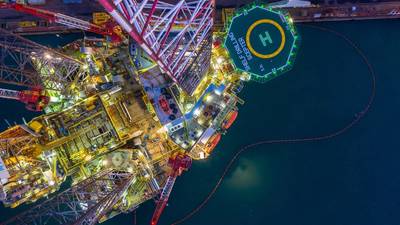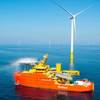New Zealand Scraps Green Policies to Boost Economy
New Zealand's green credentials are at risk as the government rolls back environmental reforms in a bid to boost a flailing economy and fulfil promises made to its voters.
Since taking power last year, Prime Minister Christopher Luxon's center-right coalition announced it will reverse a ban on oil and gas exploration, push the pricing of agricultural emissions back five year and encourage more mining.
This is part of a government shift in priorities towards increasing exports to support an economy that grew just 0.3% in the year to March 2024, its lowest growth for the same period since the pandemic hit in 2020, and that has a current account deficit at 6.8% of GDP.
Exports make up nearly a quarter of New Zealand's economy.
"The economic situation for me, is arguably the worst of the set of circumstances that I can remember in my adult life," Resources Minister Shane Jones said.
"So when the opportunity arose to champion the re-emergence of the mineral sector it was driven by quite a brutal understanding of what our economic situation is," he added.
The agricultural sector including fishing contributes 5% to the economy, and accounts for about 80% of total exports. The farmers who helped Luxon's government come to power had said the environmental policies that the coalition government are reversing would have made dairy and meat too costly to produce.
But while farmers and companies have cheered the changes, environmentalists criticized the coalition for what they said were shortsighted policies.
"They are not looking at both sides of the ledger here, and the economic impacts of wrecking the joint for a few quick bucks for the government of this day, and therefore putting at risk the prosperity of future generations of New Zealanders," said Nicola Toki, chief executive of environmental organization Forest and Bird.
Last week, the national carrier Air New Zealand dropped its 2030 emissions target, citing delays in new aircraft and the high prices of environmentally friendly fuel. The opposition Green Party said it was concerned that the government's "low ambition approach to climate change" would encourage more companies to follow suit.
A report from the government Climate Commission released last week said there were significant risks to New Zealand meeting its 2030 and 2035 domestic emission targets and its promised reduction in methane from animals and waste.
It noted any shortfall in meeting these targets would increase the need for more offshore mitigation to meet the nationally determined contribution. Treasury last year forecast mitigation could cost as much as NZ$23.5 billion ($14 billion).
EMISSION RISKS
The government has said it is working on a climate change plan that includes the planting of more trees, increasing renewable energy supply and investing in cutting edge technology to reduce emissions.
Climate Minister Simon Watts said the government expects to meet the 2030 target but admitted more work was needed to meet the 2035 target.
"The Government is committed to meeting our climate change targets, but the way in which we do this will be different to former New Zealand Governments," he said. "This Government is using a least-cost approach to meet our climate targets. We will not shut down sectors that are boosting our economy and exports."
Environmentalists, however, say this is not enough.
University of Otago Climate Change Research Network co-director Sara Walton said New Zealand would face significant reputational and financial damage for not meeting the targets.
"It’s more important than ever for companies to be reducing their emissions in order to remain competitive internationally in terms of supply chains,” said Walton.
After the rural vote helped the three party coalition government sweep to power last year, the government promised to pull agriculture from the emissions trading scheme.
Agricultural emissions would still be taxed from 2030 but rules around protecting "significant natural areas" to support biodiversity are being suspended.
Other sectors the government is targeting are energy and mineral resources.
It has said it would allow oil and gas exploration again, which former Prime Minister Jacinda Ardern banned in 2018, in a bid to reduce imports of coal, boost fuel exports and keep energy prices for the public and small businesses low.
The government has also set a target to double mineral exports to NZ$2 billion over 10 years and has announced a stock take of its resources.
It has also proposed a fasttrack consenting process that would allow the likes of mines to circumvent current resource consents if they can win ministerial approval.
Cindy Baxter, chair of environmental group Kiwis against Seabed Mining, is worried this will allow a controversial seabed mining project to go ahead on New Zealand's west coast.
"It’s a beautiful piece of ocean with reefs and sea life... which could be absolutely destroyed by seabed mining," Baxter said.
(Reuters - Reporting by Lucy Craymer; Editing by Praveen Menon and Miral Fahmy)















